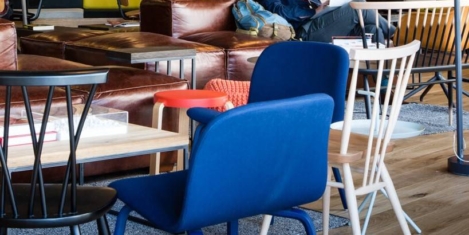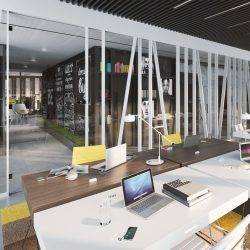November 20, 2017
Average worker now spends 27 working days a year commuting, finds TUC
 Commuters are now facing an average 58-minute daily journey – the equivalent of 27 working days a year, according to a TUC analysis. Getting to and from work now takes an extra 5 minutes a day compared with a decade ago – the equivalent of an extra 20 hours a year spent on congested roads and packed trains. The number of workers facing very long commuting times (over 2 hours) has gone up by 34 percent over the last 10 years, with 3,291,012 now facing very long journeys. Rail commuters face the longest journeys, taking an average of 2 hours and 12 minutes every day – an increase of 4 minutes on the last decade. Drivers spend 52 minutes on the road to work and back (up by 4 minutes), while bus commuters must set aside 39 minutes a day (up by 7 minutes). Cyclists (43 minutes) and walkers (30 minutes) have the quickest daily journeys.
Commuters are now facing an average 58-minute daily journey – the equivalent of 27 working days a year, according to a TUC analysis. Getting to and from work now takes an extra 5 minutes a day compared with a decade ago – the equivalent of an extra 20 hours a year spent on congested roads and packed trains. The number of workers facing very long commuting times (over 2 hours) has gone up by 34 percent over the last 10 years, with 3,291,012 now facing very long journeys. Rail commuters face the longest journeys, taking an average of 2 hours and 12 minutes every day – an increase of 4 minutes on the last decade. Drivers spend 52 minutes on the road to work and back (up by 4 minutes), while bus commuters must set aside 39 minutes a day (up by 7 minutes). Cyclists (43 minutes) and walkers (30 minutes) have the quickest daily journeys.

















 Office rents have begun to slip across Central London, and the chief reasons could be uncertainty around the outcome of the Brexit talks and the UK seemingly missing out on the rising level of global trade, suggests Cluttons’ London Office Market Bulletin Autumn 2017. While the report highlights that many locations in Central London have seen headline office rents hold steady for the better part of two years, rent free periods have been moving out in order to sustain this, but now appear to be at a critical tipping point, level, which is driving some landlords to consider alternative incentives, such as delayed completions. Freddie Pritchard-Smith, Head of commercial office agency at Cluttons said: “Many firms remain nervous about making a long-term commitment to more space, choosing either flexible overflow space or to reconfigure within their existing office. The exception to this of course remains the serviced office and TMT sectors, who have helped transactional levels in the West End to surpass 4 million sq ft already this year, which is paradoxical to the falling rental conditions.”
Office rents have begun to slip across Central London, and the chief reasons could be uncertainty around the outcome of the Brexit talks and the UK seemingly missing out on the rising level of global trade, suggests Cluttons’ London Office Market Bulletin Autumn 2017. While the report highlights that many locations in Central London have seen headline office rents hold steady for the better part of two years, rent free periods have been moving out in order to sustain this, but now appear to be at a critical tipping point, level, which is driving some landlords to consider alternative incentives, such as delayed completions. Freddie Pritchard-Smith, Head of commercial office agency at Cluttons said: “Many firms remain nervous about making a long-term commitment to more space, choosing either flexible overflow space or to reconfigure within their existing office. The exception to this of course remains the serviced office and TMT sectors, who have helped transactional levels in the West End to surpass 4 million sq ft already this year, which is paradoxical to the falling rental conditions.”
 Despite recent figures indicating that work productivity is down in Britain, the UK remains a highly attractive country for employers and employees based on a combination of talent, location, quality of life and cost, according to the latest edition of Colliers International’s European Cities of Influence report. The analysis of 50 major European economic cities for employers saw London retain its top position, with all other UK cities in the analysis featuring in the top 20 (Birmingham, Edinburgh, Manchester, Bristol and Glasgow).The report finds that quality of life factors are important to accelerate business and attract talent with the research revealing that the nature of workplace strategy is evolving so rapidly that keeping up — let alone staying ahead of the curve — can be a challenge. Employers are now focused on creating a workplace that can attract and retain talent by incorporating co-working and collaborative facilities, flexible working options and ingraining a healthy mindset. With the onus on keeping employees happy and productive, the design and utilization of the workplace is helping to accelerate business productivity more than ever before.
Despite recent figures indicating that work productivity is down in Britain, the UK remains a highly attractive country for employers and employees based on a combination of talent, location, quality of life and cost, according to the latest edition of Colliers International’s European Cities of Influence report. The analysis of 50 major European economic cities for employers saw London retain its top position, with all other UK cities in the analysis featuring in the top 20 (Birmingham, Edinburgh, Manchester, Bristol and Glasgow).The report finds that quality of life factors are important to accelerate business and attract talent with the research revealing that the nature of workplace strategy is evolving so rapidly that keeping up — let alone staying ahead of the curve — can be a challenge. Employers are now focused on creating a workplace that can attract and retain talent by incorporating co-working and collaborative facilities, flexible working options and ingraining a healthy mindset. With the onus on keeping employees happy and productive, the design and utilization of the workplace is helping to accelerate business productivity more than ever before.
 The future workplace will replace familiar, rigid hierarchies and departments with small, collaborative networks of teams and the lines between individual organisations and ecosystems will blur as companies increasingly cast their net wider to innovate. This is one of the predictions made in a Fujitsu-commissioned whitepaper ‘
The future workplace will replace familiar, rigid hierarchies and departments with small, collaborative networks of teams and the lines between individual organisations and ecosystems will blur as companies increasingly cast their net wider to innovate. This is one of the predictions made in a Fujitsu-commissioned whitepaper ‘













November 6, 2017
Time to address the missed opportunities and wasted resources of the modern workplace
by Chris Moriarty • Comment, Wellbeing, Workplace design
More →